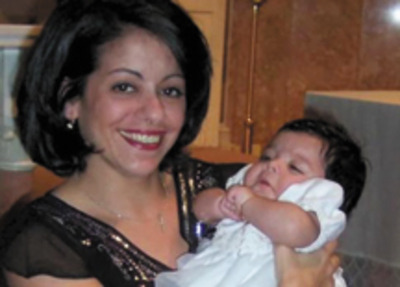Recently, New Jersey celebrated the third year anniversary of legislation that requires health care professionals who provide postnatal care to screen mothers for post partum depression. New Jersey is still the only state in the country to mandate such a screening. According to the state Department of Health and Senior Services, every year, 11,000 to 16,000 women in New Jersey experience depression shortly after having a child, and up to 80 percent of mothers experience some form of “baby blues.”
Agencies throughout Hudson County provide assistance to women seeking help, and have taken part in a new campaign called Speak Up When You’re Down.
At the Juan Pablo Duarte Park in Union City last week, as mothers gathered to watch their children play, women took time to speak about the disorder.
What mothers said
One woman, who asked to be anonymous, said that though she experienced the “baby blues” herself, she didn’t feel that it was severe enough to qualify as PPD.
“At the beginning of my pregnancy, I was told that if I was afraid of harming my child after I had her, that I could receive help,” said the woman, who was at the park with her mother and 10-month-old daughter.
She added that she could see how there might be a stigma for Hispanic women to speak openly about post partum depression.
“As Hispanic women, sometimes we’re required to be strong and we might be shy to talk about things like that,” she said. “Hopefully, if my daughter and I had a good relationship, she could tell me about it if she’d ever experienced it.”
According to Mariann Moore, director of the Hudson Perinatal Consortium, an agency for new mothers, moms of all races and socioeconomic backgrounds can be at risk for PPD. She said there also might be a stigma for women against talking about it because they are expected to be happy about the arrival of a newborn.
“You’re supposed to be on top of the world, but even those women can experience symptoms,” said Moore. “It can be detrimental for the baby if the woman doesn’t seek help.”
Another woman at the park in Union City said that she had her children back to back and didn’t have time to experience depression. But she said she had a friend who recently had a baby and who was actively seeking help.
Annemarie Sorrentino, a lifelong Guttenberg resident and a mother of four children, said she is suing her doctor for a medical complication lasting throughout and after her recent pregnancy. She said she also experienced the “baby blues,” though she is unsure if it was postpartum depression.
“I’m a tough person; I can endure a lot,” she said. However, she added that if she did have postpartum depression, she would be hesitant to take medication because she would not like to pass it on to her child while breastfeeding.
“Three days after having my daughter, it just hit me like a ton of bricks.” – Nurse Manager Nancy Sanchez
________
Nurse describes her experience
Sanchez, who openly speaks of her own experience with PPD, likes to make sure that all new mothers are screened as the law requires.
She confronted the disorder for a year and didn’t speak about it publicly until last year. Her daughter will soon turn 5.
“Three days after having my daughter, it just hit me like a ton of bricks. I just started crying,” said Sanchez, who brushed it off thinking that it was just “baby blues” and it would soon go away.
“I kept going back to my education. I know about this. I thought, ‘Everything’s going to be okay.’ Then things started falling apart,” said Sanchez.
Eventually, she started having visions and fear of her daughter being in harm’s way.
“I dealt with it for 10 months,” said Sanchez who endured many sleepless nights and says she has lost some memory of her daughter’s happy infancy.
One day, while watching a news report of a child who was hurt, she had an extreme vision that made her seek help that same day. She was given a prescription for medication and received treatment for nearly a year. She survived PPD and no longer takes medication.
Resources available
Moore says that it’s important that the public be informed of the free to low-cost resources available. She said the stigma of dealing with PPD be reduced, and that mothers should be informed about what the warning signs are for PPD.
The Hudson Perinatal Consotium can be reached at (201) 876-8900. New Jersey’s Perinatal Mood Disorders Helpline is available 24/7. Their phone number is (800) 328-3838.
Melissa Rappaport may be reached at mrappaport@hudsonreporter.com
